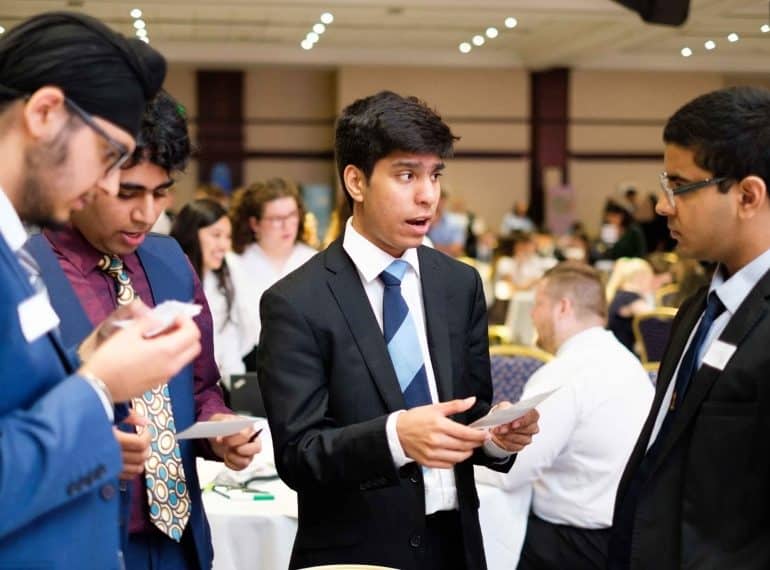
At this year’s final of a prestigious national business and accountancy competition, a QE Sixth Form team picked up prizes for teamwork, integrity and commercial acumen.
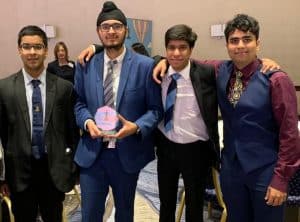 Karanvir Singh Kumar, Yash Shah, Harshil Shah and Manas Madan competed alongside 47 other school teams at the final of the BASE competition run by ICAEW (Institute of Chartered Accountants in England and Wales) in Birmingham.
Karanvir Singh Kumar, Yash Shah, Harshil Shah and Manas Madan competed alongside 47 other school teams at the final of the BASE competition run by ICAEW (Institute of Chartered Accountants in England and Wales) in Birmingham.
The competition provides school and college students with a taste of what working in the profession is really like, requiring them to approach business decisions as if they were Chartered Accountants.
The boys enjoyed a three-course dinner and overnight stay at the Hilton Hotel. But next the work began: after an early breakfast, the team received their briefing information at 9.00am and then had only two hours in which to make their decisions and prepare their final presentation for the judges.
The QE boys’ challenge was to choose which of three options would be of most benefit to Ghanaian villages: to invest in equipment for farming the cassava root vegetable, in a warehouse or in solar panels.
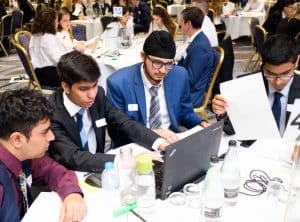 Team leader Karanvir said: “We had to consider how we would finance the venture and which sponsor we would choose. Throughout our analysis we also had to consider ethics and demonstrate integrity – key qualities of Chartered Accountants.”
Team leader Karanvir said: “We had to consider how we would finance the venture and which sponsor we would choose. Throughout our analysis we also had to consider ethics and demonstrate integrity – key qualities of Chartered Accountants.”
“We had a stressful two hours to prepare our presentation. First, we made sense of the case studies. Then we began to write our scripts and made our PowerPoint presentation. We chose to recommend investment in solar panels because of its potential to transform the lives of the local population and to enhance the socio-economic development of the country.”
After the two hours were up, the 48 teams were split into smaller groups of 5-6 teams to present to the judges.
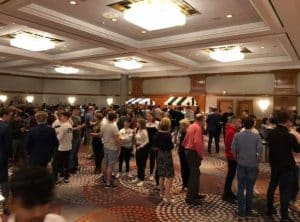 Although they QE did not win the overall title, they did take the trio of additional prizes.
Although they QE did not win the overall title, they did take the trio of additional prizes.
“The experience stretched our abilities to the maximum and tested our skills like no other challenge we have faced before,” said Karanvir. “The time pressure was especially overwhelming from the onset. I’m extremely proud of what we achieved as a team, and the hard work and dedication paid off. This was particularly so when we were awarded the prize for Business & Commercial Acumen, which was given to us for our out-of-the box thinking and awareness of real-world events.”

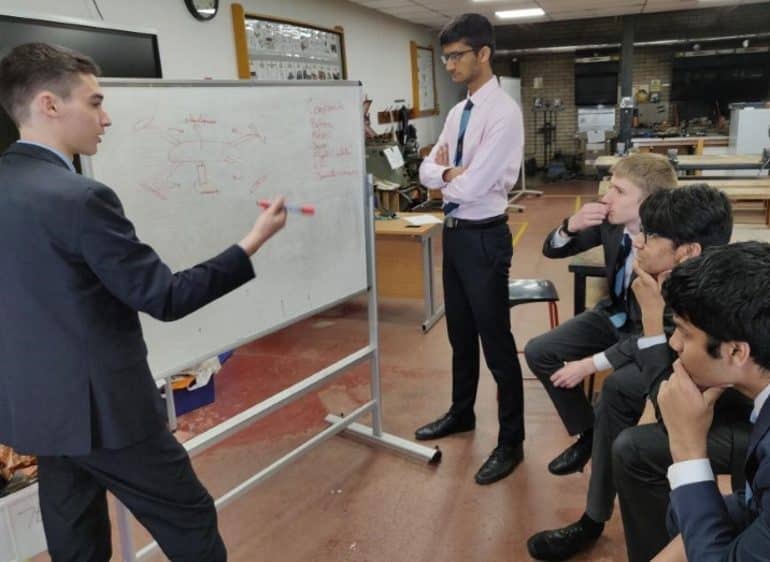
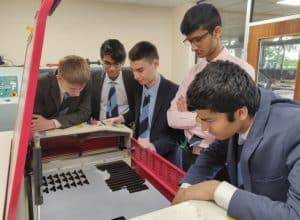 They will be up against teams from all over the world competing to show how drones could be deployed to conserve species threatened with extinction.
They will be up against teams from all over the world competing to show how drones could be deployed to conserve species threatened with extinction.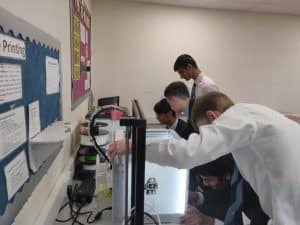 QE’s team, who are all from Year 12, are in the 15-17 year-old age category. The team comprises: Tarun Bhaskaran, Ben Domb, Deeps Gandhi, Aryan Jain and Simon Sherriff.
QE’s team, who are all from Year 12, are in the 15-17 year-old age category. The team comprises: Tarun Bhaskaran, Ben Domb, Deeps Gandhi, Aryan Jain and Simon Sherriff.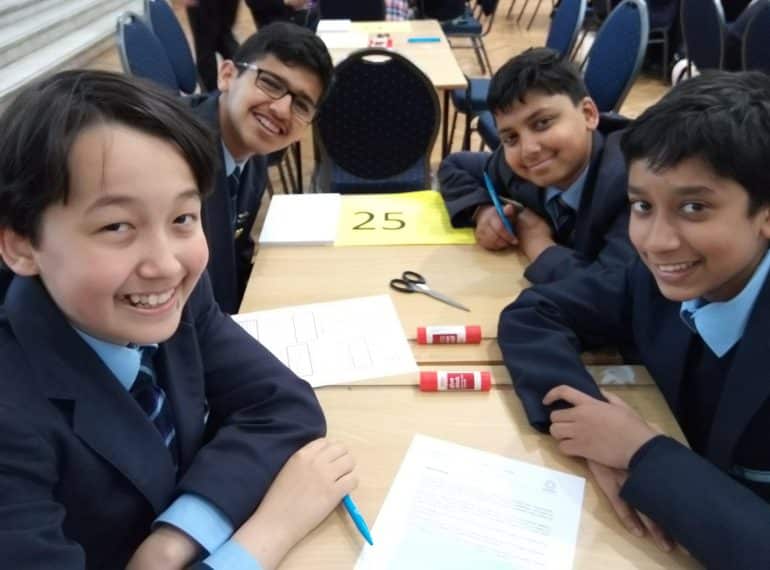
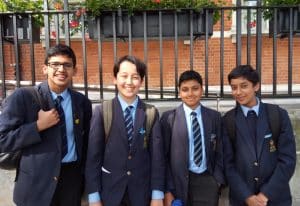 “The team were building on an impressive record of achievement in recent years: last year, QE placed 11th and in 2017 we took 17th place.”
“The team were building on an impressive record of achievement in recent years: last year, QE placed 11th and in 2017 we took 17th place.”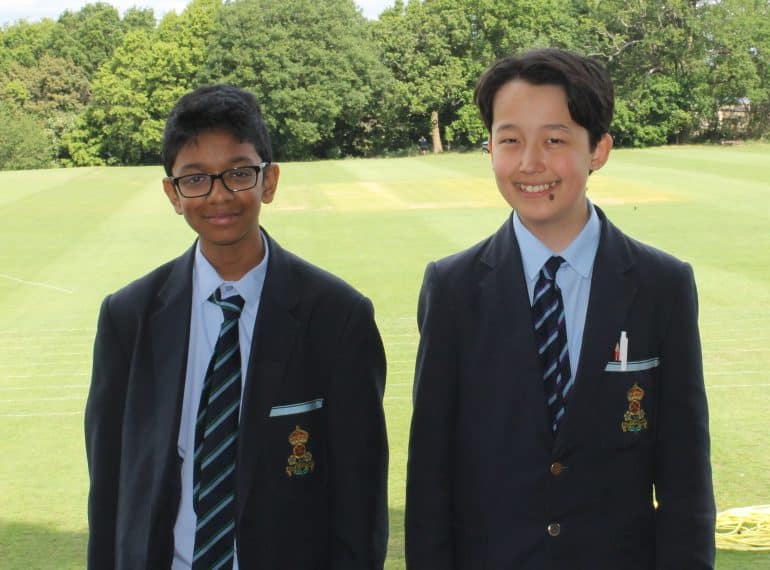
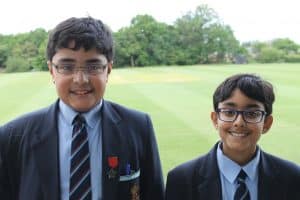 Year 8’s Maxwell Johnson’s score of 130 out of a possible 135 won him the Best in School title for the second time, while Kovid Gothi was Best in Year 7, with 128. “I am very happy to have matched my score from last year. The only thing in the way now is the Olympiad!” said Maxwell, while Kovid said simply that he was “overjoyed” at his score.
Year 8’s Maxwell Johnson’s score of 130 out of a possible 135 won him the Best in School title for the second time, while Kovid Gothi was Best in Year 7, with 128. “I am very happy to have matched my score from last year. The only thing in the way now is the Olympiad!” said Maxwell, while Kovid said simply that he was “overjoyed” at his score.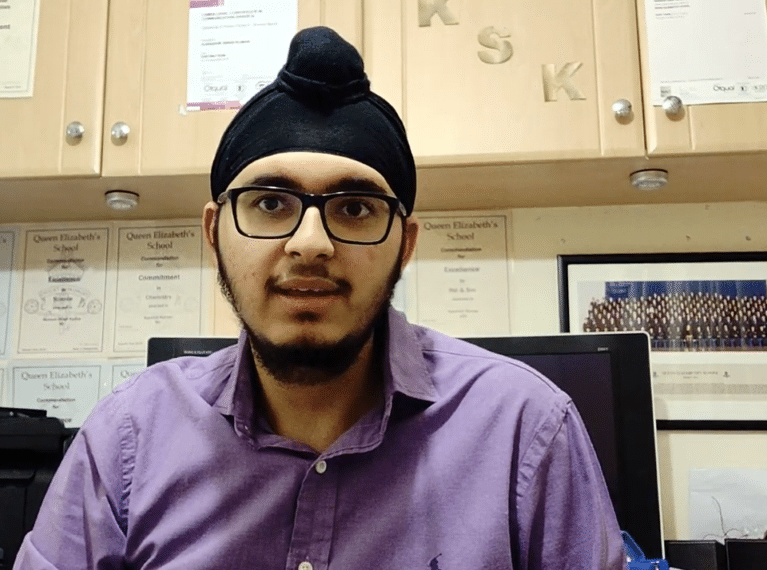
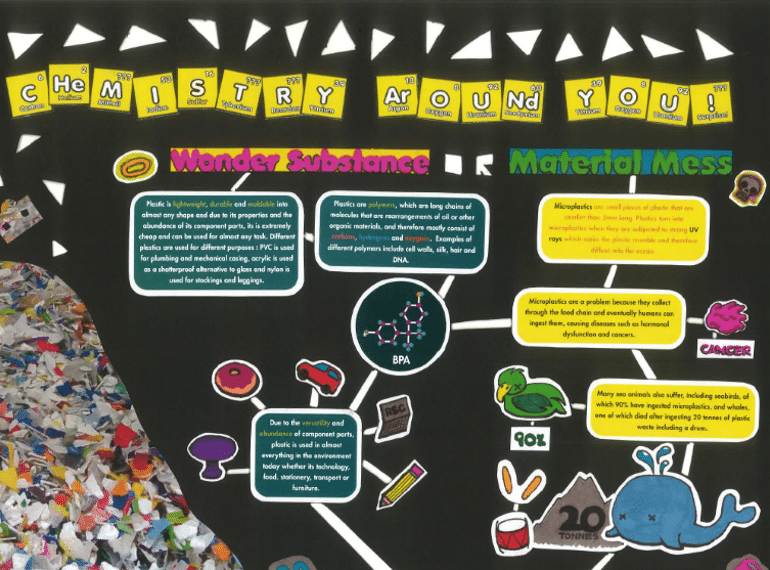
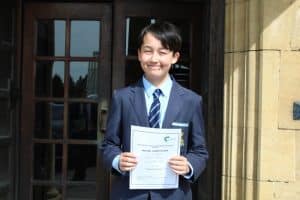 Entrants in the under-13 competition run by the RSC’s Chilterns and Middlesex Division were challenged to prepare a poster under the heading of The Chemistry Around Us.
Entrants in the under-13 competition run by the RSC’s Chilterns and Middlesex Division were challenged to prepare a poster under the heading of The Chemistry Around Us.